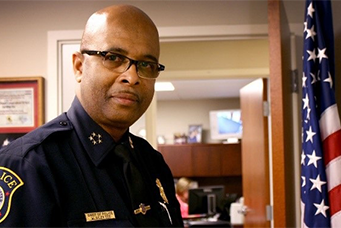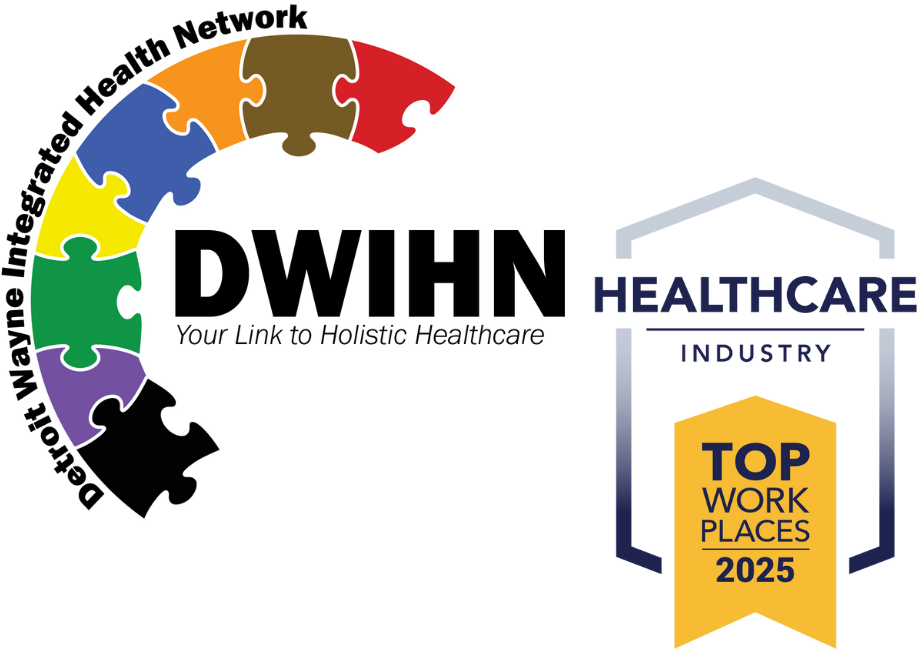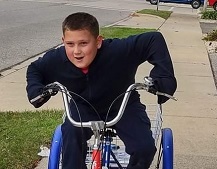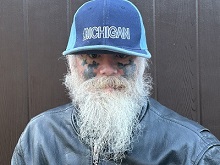Chief William T. Riley, III - Inkster Police/DWIHN Board Member

William T. Riley, III will soon be celebrating 5 years as the Police Chief of Inkster. With a population of just under 25,000 people, Chief Riley is committed to protecting citizens, lowering crime rates, and continuing training for his officers. Having worked in Alabama for ten years in Tornado Alley and on the east cost in the midst of floods, hurricanes, and ice storms, emergency management is nothing new to Riley.
When it comes to COVID-19 and the community of Inkster, Chief Riley has employed several standards for his personnel to follow as a result of his professional experience. He has asked his officers to keep their distance when they go on calls for services. Specifically, when they go into anyone’s home, they are asked to step outside so officers won’t have to be in a closed, confined area. Often times, they will provide civilians with PPE at that particular moment.
“Our goal is to keep ourselves and the citizens as healthy as possible”, said Chief Riley. “I am proud to announce that no one in my office has tested positive for COVID-19. We have 0 cases and we intend to keep it that way. This virus is something new, but the way we handle emergency management is not, and it shouldn’t be new to most police chiefs or agencies. This is why we go through training so we can know how to put a team together and make things work.”
Riley has also changed the way dispatchers relay calls. Inkster Police are only responding to priority calls such as: domestic violence, robbery, or anything serious in nature. Outside of that, dispatchers reroute calls to the police station and reports are taken over the phone and then followed up on. During this pandemic, they try their best not to arrest someone and to find an alternative resolution.
For those who are unable to have an alternative resolution sought, Inkster Police are working with judges for video arraignments. His main concern is the safety for the citizens as well because officers come in contact with so many people on a daily basis, they want to ensure staff have their PPE even though items or the virus could get on their clothes, shoes and your person.
For those who are unable to have an alternative resolution sought, Inkster Police are working with judges for video arraignments. His main concern is the safety for the citizens as well because officers come in contact with so many people on a daily basis, they want to ensure staff have their PPE even though items or the virus could get on their clothes, shoes and your person.
Overall, they’ve changed their personnel shifts in a manner to have as few people in the station to minimize contact to get the job done. As a small department, they can’t afford to have 4-5 staff infected as it would be very difficult to police. However, if that did happen they could rely on the assistance and support from the Michigan State Police and the Wayne County Sherriff’s Department.
The most important thing is to provide a service to his people and to make sure the citizens stay safe. Chief Riley has also been assisting with food distribution to those in need.
“We’re thankful for Detroit Rescue Mission Ministries and the Wayne County Sherriff’s Department for coming out with 200 individual boxes of food for our seniors.”
The city of Inkster has been coming together during this time of disparity to provide food and other resources. DD’s Groceries, Mickey Shorr, Mother’s Pantry, Pastor Jean Overman of Outreach Ministries Christ Temple, A Dearborn Heights Councilman, and so many small businesses have stepped up both, inside and outside of Inkster by donating PPE so they can function. Riley recognizes that the people must come together as one at this time because States cannot do it by themselves.
As a member of the Detroit Wayne Integrated Health Network’s (DWIHN) Full Board and Substance Use Disorder (SUD) Initiatives Board, Chief Riley likes to hold people accountable for their actions. When he first arrived in Detroit back in 2015, he met SUD Board Member Tom Adams who told Riley all about the purpose of the initiative and he immediately knew he wanted to be a part of that.
Riley has a different perspective on how arresting should be and how police officers can prevent and help combat the illness of addiction and what can he do to help people who are sick. From working during the crack epidemic, most of Chief Riley’s time in policing was spent in investigating homicides.
“It was so violent – drugs, guns, and shootings. In the midst of all of that, we knew how addictive the drugs were. While there were people that needed to be locked up (drug-dealers), there were also those people who were strung out and needed help.
Riley feels law enforcement wasn’t taking a strong look at the advantages of getting people treated and healed in lieu of jailtime. He believes Crisis Intervention Teams will rule the day by changing the entire dynamic because everyone has family or friends that are touched by either drugs or mental health issues and jail is not going to help them. Especially in this time with COVID-19, there has been an increase of anxiety, depression, stress, and other mental health issues as hospitals are overflowing with COVID patients.
He is proud of working with DWIHN and its Providers that they come out for our people who have those issues in the jail diversion program. In 2019, Inkster Police Department has been monitoring and tracking cases relevant to the mental health Adult Foster Care (AFC) homes. He made sure officers included crucial information in their reports, such as: when they went to the homes, drug screenings, failure to take medication, use of other narcotics and alcohol, etc.
Once he was able to track what was happening, he realized he could get people the proper treatment and become less of a threat to them. In January of 2019 Inkster Police Department averaged about 40 calls of services per month through AFC homes. In February there were 43, and in March 50. When they finally got the protocol engaged, they saw a huge reduction in the calls of services - April dropped down to 27, May dropped down to 26, June to 29, and in October to 11, November to 15, December to 17, and finally, in January of 2020, there were only 8 estimated calls for services.
“That’s why what DWIHN does is so important. It’s not only helping the community. It’ also helping law enforcement to look at things from a different perspective.”
Chief Riley also sits as the Chair of the Committee for Recipient Rights. The purpose of this committee is to make better informed decisions for people receiving services through DWIHN. It is to also ensure people served are treated fairly, with dignity and respect so no one takes advantage of them.
¬¬ “I’m a strong supporter of Mr. Willie E. Brooks, Jr. I thought he was the best candidate to be the President and CEO of DWIHN because of his business acumen. He has a lot of great ideas and I share this with him because when you’re a new executive of an organization who has to rebuild and point a ship in the right direction, that’s a lot of weight on your shoulders. I can relate because initially, I knew nothing about the City of Inkster.”
To stay up on all of the changes on COVID-19, Chief Riley tunes in to DWIHN’s information of what’s going on in Lansing, across the State and from the Governor’s office. Inkster’s Mayor Patrick Wimberly is constantly in contact with Lansing and he continues to push that information out. He also communicates with other Chiefs in Western Wayne and watches the news. Chief Riley communicates to his staff via e-mail and uses PERF, the Police Executive Research Forum which monitors national crime trends.
There’s a host of information that’s coming through on a local and state-level that’s keeping them up-to-date during this crisis. They’ve recognized the challenge and have risen to the challenge.
“I’m very proud of my officers. This has been a very stressful time. We’ve had to change our schedules to longer hours, but everyone knows what they need to do and everyone has been there for each other and our citizens.” Even though a lot of face to face interaction has temporarily stopped, telephonic methods empower us to still help.
I hate to see people lose their life during this pandemic, but we must make sure we do our best to protect our people during this crisis. We don’t want the community to see us as a threat. I work so hard and am dedicated to what we do at DWIHN,” says Riley.
I hate to see people lose their life during this pandemic, but we must make sure we do our best to protect our people during this crisis. We don’t want the community to see us as a threat. I work so hard and am dedicated to what we do at DWIHN,” says Riley.
If you or someone you know needs assistance, please call the Detroit Wayne Integrated Health Network’s 24/7 HelpLine at 1-800-241-4949 or visit www.dwihn.org.
By: Jaren Roberts
Photo Credit: William T. Riley, III Inkster Police Chief
Photo Credit: William T. Riley, III Inkster Police Chief

 Trace
Trace  Brady
Brady  Michael
Michael